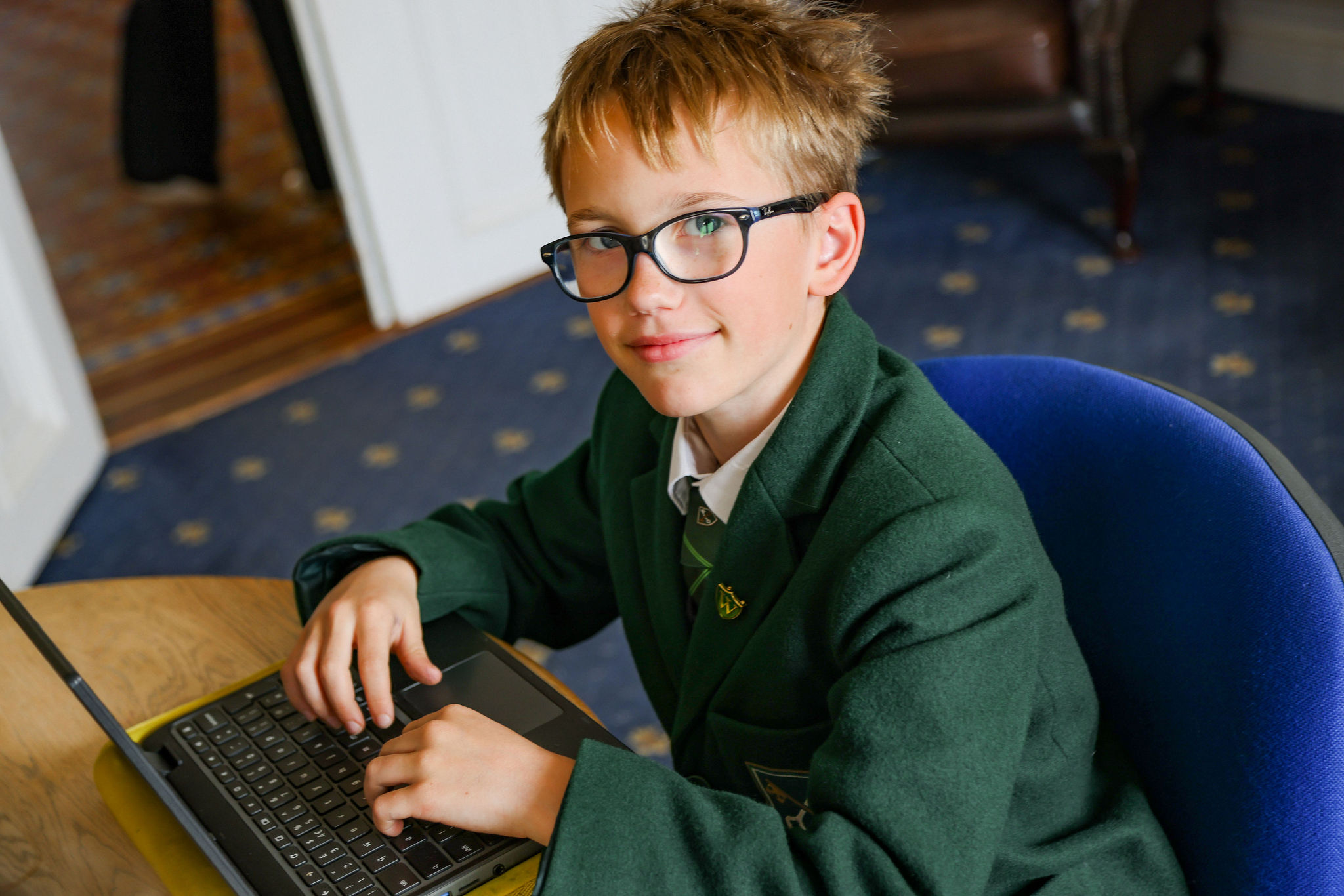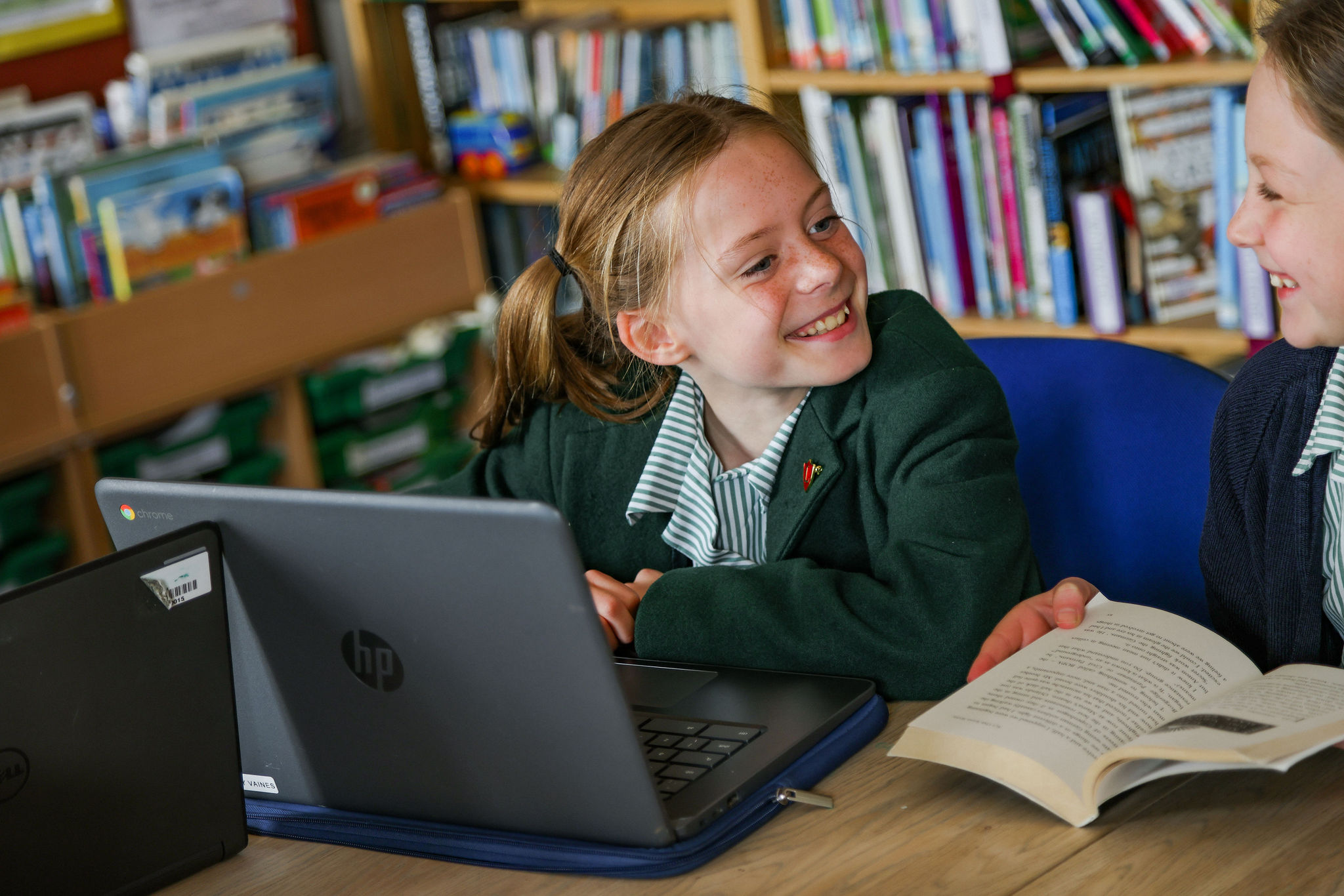Different technologies and the many possibilities of the online world have rapidly become central parts of our daily lives. This ever-changing nature of the digital landscape means it’s becoming increasingly important that our children are taught the skills they need to safely navigate and understand digital sources and media.
At our prep school in Devon, we are dedicated to providing an all-rounded education that sets every pupil up for future success, with a range of academic opportunities, including classes in information and communications technology.
Discover the importance of developing digital skills and a more nuanced understanding of online spaces from a young age.
What is Digital Literacy?
Digital literacy refers to the skills needed to access, understand and communicate information using technologies like the internet, social media or digital devices.
Having good digital literacy doesn’t just come down to knowing how to technically use a computer or other devices; it’s about knowing how to find and interpret the right digital sources, going hand in hand with the development of critical thinking skills.
Technology is becoming integral to the ways we live our lives. There are endless advantages and downsides to having access to so many things at our fingertips, so it’s essential children are taught how to properly engage with the digital world and are given the necessary framework or tools to continue learning as technology continues changing.
Everyday Examples of Digital Literacy
Due to our daily use of smartphones, tablets, social media, apps and online browsing, many children will pick up digital literacy skills from their parents without necessarily having any formal education around it.
- Using search engines like Google to find answers to questions or access new information sources.
- Navigating websites.
- Chatting with friends and family via social media or instant messengers.
- Reading eBooks on digital devices.
- Using usernames and passwords to create online profiles or accounts.
- Using apps to help with everyday tasks and organisation – e.g. maps, calculator, calendar, notes, weather.
Beyond the basics, it’s about teaching kids about best practices and being able to think for themselves.
Essential Digital Skills For Children
There are several core skills that will help children develop a good relationship with the internet and all things digital.
- Finding reliable information
- Using different software
- Creating content
- Communicating digitally
- Keeping safe online
Finding Reliable Information
Children should learn how to access different sources of information, developing an understanding of where to locate information and what can and cannot be trusted. They should understand that not everything online is true or accurate and should be taught to ask questions about the reliability of certain information, sites or people.
When doing homework or a project, look through different sources together and discuss what information is being presented and why. This helps them develop vital critical thinking skills and keeps them curious about different subjects.
Using Different Software
A good working knowledge of things like Microsoft Word or other word processing software helps children build a strong base for skills they’ll likely need in further education and the workplace.
Understanding how to use things like Word can also help with typing skills and learning how to organise information.

Creating Content
Beyond using Word to help with writing and composition, children will also have the opportunity to create different forms of ‘content’ using digital means. This could be as simple as writing an email to more ambitious school projects that involve planning and filming video content.
Different forms of content creation involve a range of steps, so ensure you support your child by working through any technical aspects.
Communicating Digitally
Developing an understanding of how to safely share content or communicate via digital means ensures children have a better awareness of their digital footprint. This can help ensure they’re more mindful of what is shared and to who.
Have open conversations about social media with your child. Even if you haven’t allowed them to make an account, they may still be accessing social media, so it is essential to arm them with the knowledge to keep themselves protected.
Staying Safe Online
Within all of these skills, there is one thing at the forefront: understanding how to stay safe online. Depending on the age of your child, this will usually mean applying restrictions to their internet access and screen time, but it’s also important to provide a developed understanding of internet safety.
Keeping Children Safe Online
This will include things like ensuring children:
- Know not to give personal details to anyone online
- Can create strong passwords
- Inform a trusted adult if they see something inappropriate or that they don’t understand
- Understand basic privacy settings
- Understand what kind of sites can be trusted
Every child growing up in the modern world will form some kind of relationship with technology. Parents and educators are beginning to see the importance of working with digital media rather than against it to ensure our child can confidently, safely and efficiently use their digital literacy skills in action.










